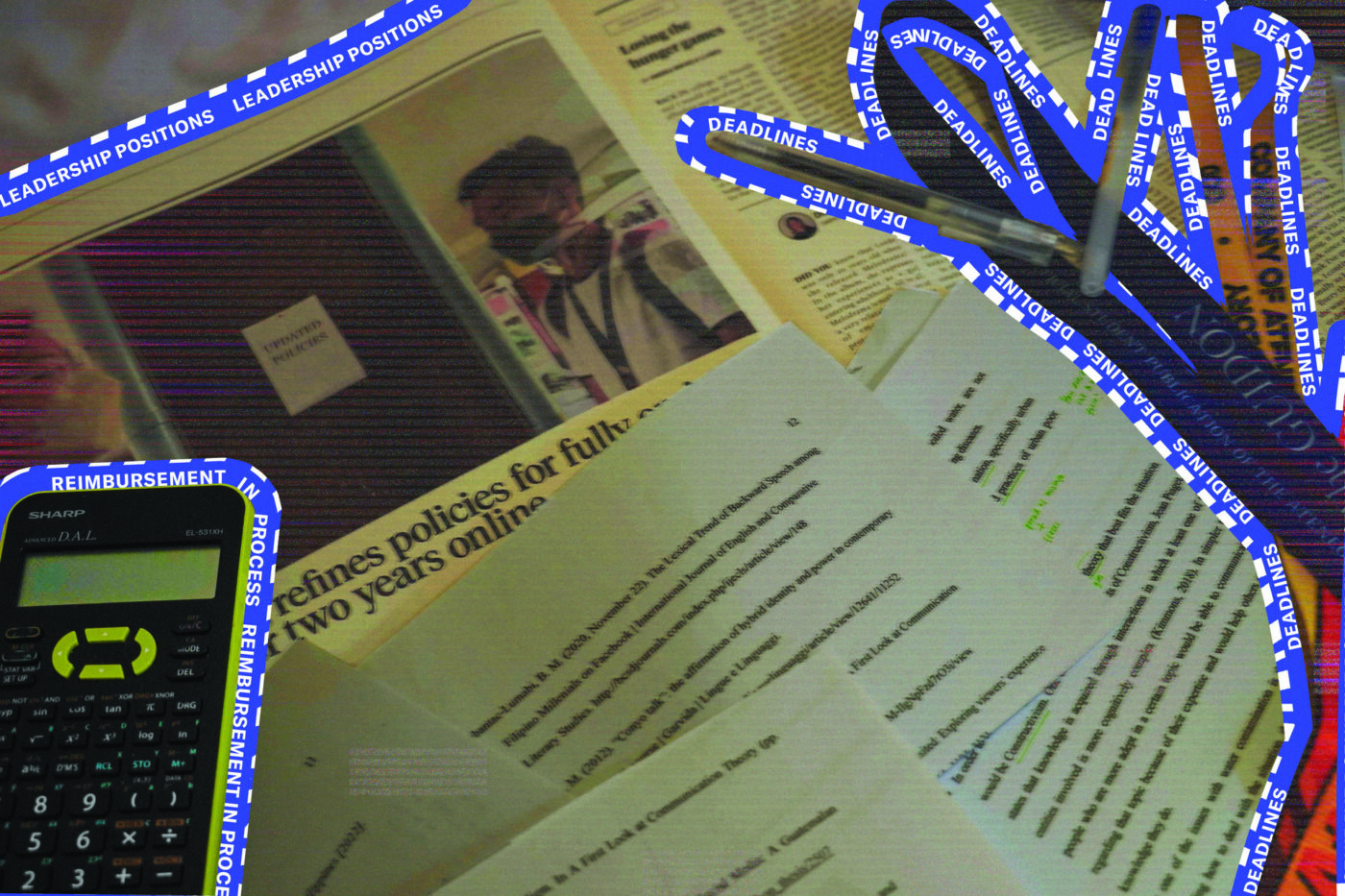FOR ANY student-leader, service comes with sacrifice. They are faced with the challenge of balancing their academic responsibilities while simultaneously ensuring that they respond to the needs of their organizations the right away.
At the end of the day, their drive to continue serving the student body is rooted in the sense of fulfillment and empowerment they receive from the labor of their love.
Tip the scales
Many Loyola School (LS) students find themselves participating in different student organizations, often requiring them to balance academic and organizational responsibilities. However, some may struggle to find the right time to focus on these obligations.
For League of Independent Organizations (LIONS) Coordinator Alexa Derpo and Council of Organizations of the Ateneo-Manila (COA-M) President Nina San Andres, they admitted to handling tasks of their respective organizations during their class hours.
Derpo and San Andres believe that it is part of their duty to be prompt when it comes to the concerns of their organizations.
On the one hand, Derpo shares that she tries to balance her extracurricular obligations by making a timeline of possible projects to anticipate over the academic year.
On the other hand, San Andres encourages setting boundaries when it comes to work-life balance. Since students had to continue their studies at home due to the COVID-19 pandemic, she believes that the boundary separating work and personal life was lost to the online setup and must be reevaluated now.
With the current onsite setup, Derpo believes that LIONS has developed a healthy workplace as they incorporate team bondings such as having meals to accompany their weekly meetings. For San Andres, she reclaims the division between work and personal life through the enforcement of working hours for herself and COA-M.
Despite their efforts to foster a healthy work system within their organizations, there remains hesitations from taking breaks. Derpo shares her reluctance to pause due to her duty to the organization.
However, she recognizes that students may choose to take a break or remain unresponsive due to undisclosed reasons—other obligations, mental health, or loss of passion.
On academic burnout
Despite preventive measures, experiencing burnout remains almost inevitable for student-leaders. For Derpo, her experience of burnout was “more psychological” rather than the physical act of doing her obligations. This was because she always wanted to accomplish a lot of things, eventually stretching herself beyond her capacity.
On top of this, academic burnout remains a prevalent concern within the LS. For Marvin Cruz, a guidance counselor at the Loyola Schools Office of Guidance and Counseling (LSOGC), students who experience academic burnout feel “depleted and cynical about school, which later leads to disengagement.”
Throughout his experience as a moderator for Ateneo Peers, Cruz has seen a number of student-leaders resign from their positions due to burnout.
For Derpo, organizational work does not necessarily—and should not—lead to burnout. Instead, she believes that the absence of a culture that prioritizes the welfare of its members particularly leads to burnout.
Similarly, San Andres finds that students experience burnout because they do not particularly enjoy or find purpose in the work they do. In response to this, she shares, “Everything is always going to be exhausting. You just need to find the thing that you’d be happy to be exhausted over.”
To combat burnout, some student organizations like Ateneo EDGE have reached out to the LSOGC for stress management workshops that promote member wellness. In addition, COA-M holds HR Conferences where organizations within the University exchange their current practices for member development to improve and learn from each other.
Camaraderie amid trials
Despite the burnout student leaders face from balancing their academics and organizations, they look back to what pushed them to take these leadership positions in the first place.
For Derpo and San Andres, their love for service stems from the common goal of COA-M and LIONS: empowering student organizations and creating avenues for their sectors to be represented.
Along with this, these student leaders have expressed the role of support systems in their organizations in alleviating the weight of their tasks. “Even when things are difficult, at least you have people with you doing it as well,” San Andres says.
At the end of the day, students across the entire LS remain committed to working towards representing the core goals of the organizations they are part of. With this, the shared experience of balancing obligations provides a sense of solidarity that ultimately triumphs over burnout.







